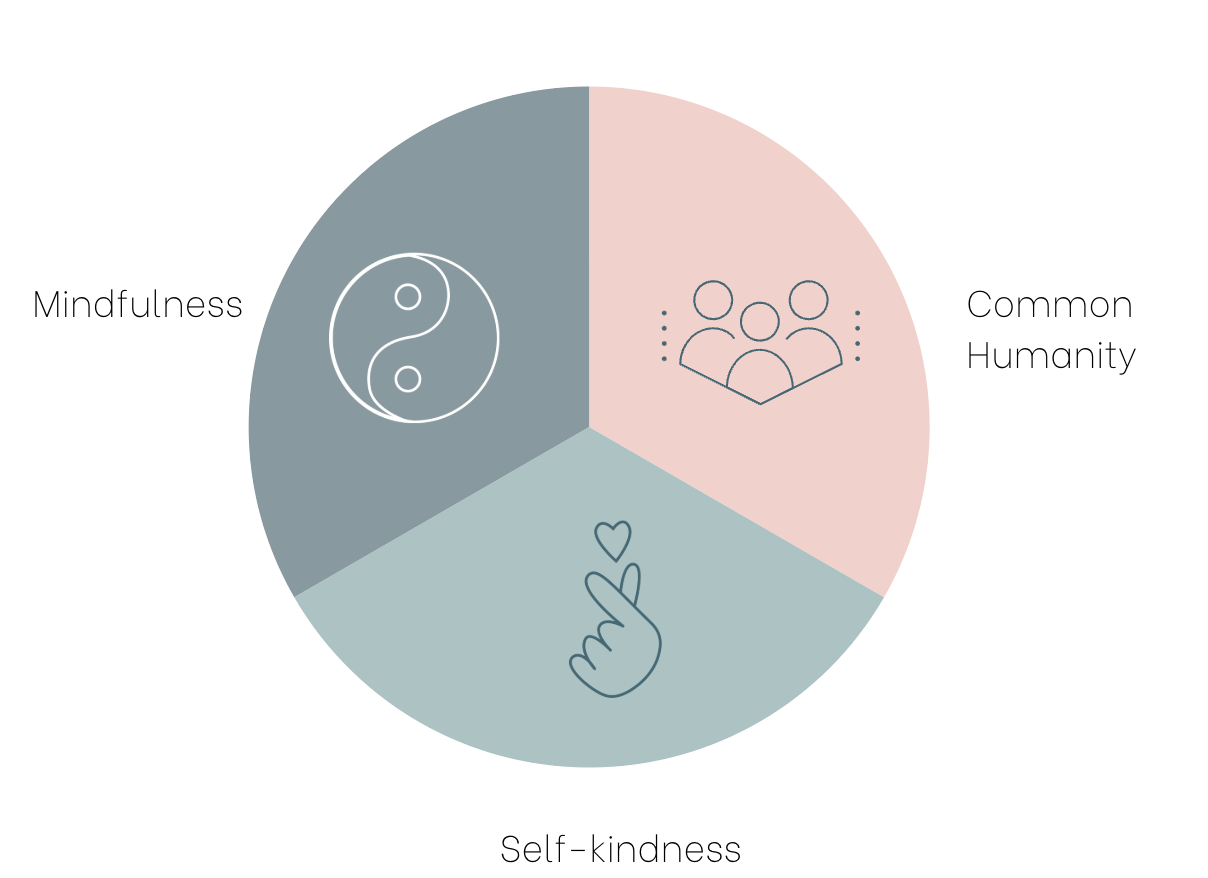Self-Compassion 101 | What is Self-Compassion?
Part 1 in a Series of 5 Articles on Self-Compassion
When I ask students this question, I get a wide range of responses. Some have quick, confident answers, while others look puzzled, as if the concept is completely foreign.
Giving myself a break!
Being encouraging.
I have no idea.
Being a friend to myself?
I don’t do self-compassion.
It’s a reminder that while we often hear about self-esteem, self-care, and resilience, self-compassion isn’t always part of the conversation. And yet, it’s one of the most powerful inner resources we can develop.
I like to describe self-compassion as an inner safety net—a steady, reliable way to support ourselves from within. Unlike external validation or support from others (which, while important, can be inconsistent), self-compassion is something we can cultivate and access at any time. It’s about learning to turn toward ourselves with kindness, rather than judgment, especially in difficult moments.
The Three Elements of Self-Compassion
Dr. Kristin Neff, the leading researcher in the field, has defined self-compassion as having three core components:
Mindfulness – This means being aware of the present moment as it unfolds, without harsh self-judgment. Simply noticing our thoughts and emotions without getting lost in them is the first step toward change. I call this “kindfulness.”
Common Humanity – This is the recognition that suffering is a universal human experience. When we struggle, it’s easy to feel isolated, as if we’re the only ones facing challenges. But reminding ourselves that we are not alone—that others, too, experience stress, self-doubt, and hardship—helps us feel more connected and less overwhelmed.
Self-Kindness – This is about offering ourselves the same warmth and encouragement we would extend to a good friend. Instead of harsh self-criticism, self-kindness means responding to our own difficulties with patience, understanding, and care. Most of us realize that we’d never say outloud what we tell ourselves to another person. That would just be rude!
Why Self-Compassion Matters
High achievers, perfectionists, and students I work with often believe they need to be hard on themselves to succeed. They fear that self-compassion means letting themselves off the hook. But the research tells a different story: self-compassion doesn’t make us complacent—it makes us more resilient. By treating ourselves with kindness, we create the emotional safety needed to take risks, learn from mistakes, and keep moving forward.
A Simple Practice: The Self-Compassion Break
One of my favorite ways to introduce self-compassion is through a short practice from the Mindful Self-Compassion method called the Self-Compassion Break. If the term self-compassion feels too abstract or soft, I sometimes call this a brain break—which many people find easier to relate to.
It has three simple steps:
Acknowledge the struggle – Say to yourself, This is hard. This is a moment of stress. Naming what’s happening helps bring awareness to your experience.
Connect to common humanity – Remind yourself, I’m not alone in this. Others feel overwhelmed too. This helps counteract the tendency to feel isolated in difficulty.
Offer yourself kindness – Place a hand on your heart or another comforting gesture and say, I’m doing my best. It’s okay to struggle. I will get through this. Physical touch, even from ourselves, can release oxytocin, helping us feel safe and supported.(We’ll get to that in the next article).
This self-compassion practice can take less than a minute, but it shifts our mindset in powerful ways. I often encourage students to tuck their hands into their sweatshirt pockets and simply rest with folded arms like a self-hug for 30 seconds. These small moments of self-compassion can add up to big changes over time.
Here is a link to a longer 8 min guided audio.
Looking Ahead
In the next part of this series, we’ll explore how to practice self-compassion in daily life. For now, I invite you to try a Self-Compassion Break today—because the way we talk to ourselves matters.
More from the Self-Compassion 101 Series
Part 2: Building Self-Compassion Into Daily Life
Part 3: Befriending The Inner Critic
Part 4: Overcoming Resistance to Being Kind to Yourself
Part 5: The Power of Loving-Kindness Meditation (Audio)
iStock Photo Credit: stellalevi









This is really nicely written and actionable Tara. A reminder of things I will do... but not always... and not consistently. Thanks for this gentle reminder. I will share this short piece in my newsletter on Sunday and have subscribed to read more from you.